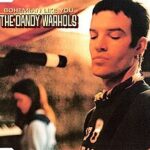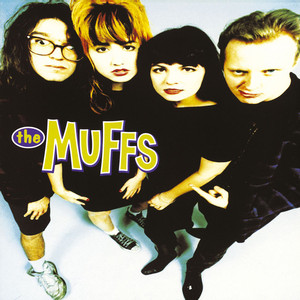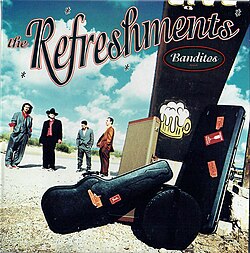 The late 1990s were a time of musical contradiction. On one hand, pop music dominated the airwaves with boy bands and glossy female solo artists. On the other, alternative rock and indie music were carving out spaces for themselves in the mainstream, often with a sense of irony and self-awareness. Into this environment came The Dandy Warhols, a Portland-based band with a penchant for sardonic lyrics, jangly guitars, and effortless cool. Among their catalog, one song stands out as their defining moment: “Bohemian Like You.” Released in 2000 as part of their album Thirteen Tales from Urban Bohemia, it captured the ethos of the indie scene while also crossing over into broader cultural recognition.
The late 1990s were a time of musical contradiction. On one hand, pop music dominated the airwaves with boy bands and glossy female solo artists. On the other, alternative rock and indie music were carving out spaces for themselves in the mainstream, often with a sense of irony and self-awareness. Into this environment came The Dandy Warhols, a Portland-based band with a penchant for sardonic lyrics, jangly guitars, and effortless cool. Among their catalog, one song stands out as their defining moment: “Bohemian Like You.” Released in 2000 as part of their album Thirteen Tales from Urban Bohemia, it captured the ethos of the indie scene while also crossing over into broader cultural recognition.
The song’s success is surprising in some ways. It wasn’t a deeply political track, nor did it rely on big production gimmicks. Instead, it thrived on attitude, wit, and groove. Its story, its sonic architecture, and its cultural footprint make it a fascinating case study in how a seemingly casual indie track can become a generational anthem.
Origins and the Portland Scene
The Dandy Warhols were formed in Portland, Oregon, in 1994, with Courtney Taylor-Taylor on vocals and guitar, Peter Holmström on guitar, Zia McCabe on keyboards and bass, and Eric Hedford on drums. They quickly developed a sound that blended psychedelic rock, alternative riffs, and a tongue-in-cheek embrace of the indie lifestyle.
Portland in the mid-1990s was fertile ground for experimentation. While Seattle had exploded with grunge, Portland remained quieter but creatively vibrant. The city’s DIY culture and support for local music allowed The Dandy Warhols to experiment without pressure from corporate labels. By the late 1990s, the band had honed a sound that balanced swagger with detachment, mixing the hedonism of the ’60s and ’70s with the irony of the ’90s.
“Bohemian Like You” emerged directly from this milieu. The song was meant to be a playful critique of a certain type of trendy, self-conscious urban bohemian, a figure common in Portland, San Francisco, and other gentrifying indie hubs. The lyrics are observant without being cruel, and the music mirrors that playful tone.
Writing the Song
Courtney Taylor-Taylor has said that “Bohemian Like You” was inspired by a woman he encountered who embodied the contradictions of the indie lifestyle: intellectual but superficial, hip but self-aware, carefree but calculated. Lines like “You got a great car / Yeah, what a crazy star / And you drive it really fast / Yes, you do” poke fun at these contradictions while celebrating the energy and charisma of someone who refuses to fit neatly into a mold.
The song’s structure is deceptively simple. It’s built around a jangly guitar riff that repeats almost hypnotically throughout the track. The drums and bass provide a steady, driving pulse, while Zia McCabe’s keyboard flourishes punctuate the verses. This simplicity is part of its genius: the groove is infectious, almost lazy, mirroring the laid-back yet slightly ironic attitude of the lyrics.
Vocally, Taylor-Taylor’s delivery is relaxed, teasing, and sardonic. He sounds as if he’s telling a story to a friend over a drink, a performance style that contrasts sharply with the overproduced, heavily layered vocals dominating pop music at the time. The effect is intimacy mixed with cool detachment—a hallmark of late-’90s indie rock.
The Album Context: Thirteen Tales from Urban Bohemia
“Bohemian Like You” appears on Thirteen Tales from Urban Bohemia, an album that helped define The Dandy Warhols’ sound and aesthetic. The record is a mix of psychedelic textures, punk energy, and alternative rock sensibilities. While many tracks explore darker or more experimental territories, “Bohemian Like You” stands out for its immediate accessibility.
Interestingly, the album initially received modest attention. The Dandy Warhols had a devoted fan base, but mainstream recognition was limited. It was the clever use of the song in advertising that helped catapult it into broader public awareness.
The Commercial Breakthrough
In 2001, the song was licensed for a European commercial for Vodafone, a mobile phone company. The ad’s popularity in the United Kingdom transformed “Bohemian Like You” into a hit overseas. The track climbed to No. 5 on the UK Singles Chart and became a staple of alternative radio stations across Europe.
The commercial placement created a peculiar kind of success: the song became ubiquitous, yet many listeners discovered it without knowing much about The Dandy Warhols themselves. This is a common phenomenon for indie bands in the era: licensing to advertisers or film and TV placements became a viable way to reach audiences, sometimes eclipsing traditional radio promotion.
In the United States, the song’s impact was more gradual. It became a college radio favorite and a fixture on alternative rock playlists. Its catchy riff, clever lyrics, and upbeat vibe made it a frequent selection for bars, cafes, and indie music venues, embedding it in the early-2000s cultural landscape.
Lyrics and Cultural Commentary
At first glance, the lyrics of “Bohemian Like You” appear playful and observational. But beneath the surface lies a subtle critique of a particular cultural phenomenon. The song examines the contradictions of bohemian lifestyles in urban centers: people striving for authenticity while consciously curating their image, attempting spontaneity while meticulously documenting their lives, pursuing freedom while constrained by social performance.
Lines like:
“You got a downtown address / And a park that’s really nice / But you only go there with the right crowd”
highlight the tension between the ideal of authenticity and the reality of social performativity. Taylor-Taylor doesn’t mock these individuals; he admires them, even as he pokes gentle fun. The result is a song that is simultaneously witty, satirical, and affectionate—a rare blend in mainstream-friendly alternative rock.
The song also captures the spirit of early-2000s indie culture in ways that have proven timeless. Its celebration of small urban pleasures—cheap wine, quirky apartments, local cafes—resonates with anyone who has experienced the contradictions and joys of urban creative life.
Musicality and Style
The brilliance of “Bohemian Like You” lies as much in its musical construction as in its lyrics. The guitar riff, simple but memorable, forms the backbone of the track, giving it a sense of drive and energy. The rhythm section keeps the groove solid, letting the guitar and vocals float over the top without feeling static.
The song’s production is clean, yet intentionally understated. There’s no excess layering, no unnecessary effects—just tight musicianship and confident performance. This restraint enhances the song’s cool factor: it feels effortless, like a casual jam that just happens to be perfect.
Moreover, the song captures the essence of indie rock’s flirtation with retro sounds. Its guitar tones are reminiscent of ’60s jangle pop, while its lyrical wit and vocal delivery nod to post-punk and alternative sensibilities. It bridges eras, making it appealing both to those nostalgic for earlier rock movements and to contemporary listeners of its time.
Cultural Impact
Over two decades after its release, “Bohemian Like You” remains an enduring symbol of indie rock chic. It has appeared in television shows, films, and countless playlists celebrating the late ’90s and early 2000s music scene. Its riff has been covered, sampled, and referenced by newer bands, cementing its status as a cultural touchstone.
Perhaps more importantly, the song has a kind of generational significance. For many listeners who came of age in the early 2000s, it represents a particular moment of discovering independence, navigating social identity, and embracing the contradictions inherent in adult life. It’s clever but not cynical, fun but not frivolous—a combination that resonates across time.
The track’s blend of accessibility and indie credibility has also influenced subsequent generations of alternative musicians. Bands seeking to balance wit, groove, and charm often cite “Bohemian Like You” as a blueprint for how to write songs that are both culturally specific and universally appealing.
Legacy of The Dandy Warhols
While “Bohemian Like You” remains The Dandy Warhols’ signature track, the band’s broader catalog reflects a consistent exploration of style, satire, and psychedelic aesthetics. Albums like Come Down and Welcome to the Monkey House show their willingness to experiment, blending glam rock, electronic textures, and alternative rock sensibilities.
Courtney Taylor-Taylor and his bandmates have maintained a devoted fan base, particularly among listeners who appreciate the intersection of humor, attitude, and musical craftsmanship. They’ve also maintained a distinctive visual aesthetic, with album art and videos that reflect the playful, ironic energy captured in their music.
Yet “Bohemian Like You” remains the track that defines their public perception. It’s the song that gets airplay decades later, that introduces new fans to the band, and that exemplifies their ability to combine humor, social observation, and memorable musical hooks.
Why the Song Endures
The endurance of “Bohemian Like You” is not a matter of luck—it is a product of its clever writing, infectious groove, and cultural specificity. Its riff is instantly recognizable, its lyrics offer both humor and insight, and its performance radiates effortless confidence.
It also thrives because it captures a spirit of contradiction and irony that is timeless. The song celebrates urban bohemian culture while acknowledging its absurdities. It embraces both sincerity and sarcasm, allowing listeners to feel smart, amused, and emotionally connected simultaneously.
Finally, its versatility as a track—from bars to radio to film soundtracks—ensures its continued relevance. It’s one of those rare songs that works in almost any context, appealing to both casual listeners and devoted indie fans.
Conclusion: Indie Cool Captured in a Riff
“Bohemian Like You” by The Dandy Warhols is a masterclass in combining attitude, observation, and musicality. Its jangly guitar riff, sardonic lyrics, and infectious groove make it a song that transcends the era of its creation, capturing the contradictions and charm of urban indie life at the turn of the millennium.
For The Dandy Warhols, it was the track that cemented their place in alternative rock history. For listeners, it remains a soundtrack to youth, urban exploration, and the subtle absurdities of human behavior. It proves that sometimes the simplest combination—a catchy riff, a witty lyric, and a confident performance—is enough to create a lasting anthem.
Two decades after its release, “Bohemian Like You” continues to resonate. It’s a song that invites listeners to laugh, nod knowingly, and perhaps even see a bit of themselves in its characters. More than just a hit single, it’s a cultural artifact of indie rock at its wittiest, coolest, and most enduring.


